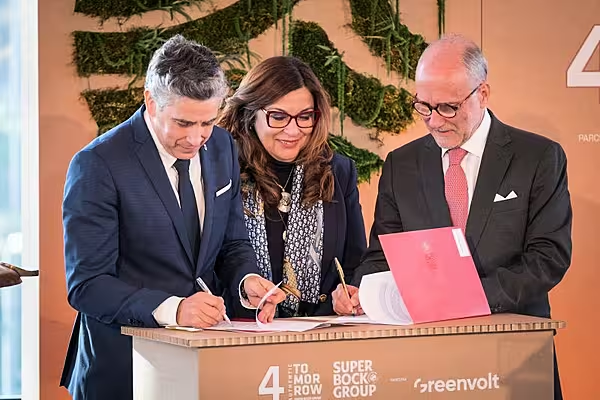Euphoria in Chile is making its largest brewer look much, much better than it really is.
Shares of Cia Cervecerias Unidas SA are trading near record highs as investors pile into all stocks Chilean. They’re betting that November elections will bring in a more market-friendly government that will boost investment and growth. The stock has gone so far as to outperform the IPSA index 25 percent to 18 percent, respectively.
The devil’s in the details: CCU has the lowest average consensus in the Bloomberg Intelligence Latin American Beverages index. The average price target points to a 10 percent decline in shares. And the company, which is 60 percent controlled by Heineken NV and Chile’s Quinenco SA, has missed profit estimates in seven of the last eight quarters.
"The stock is still overvalued," as the company’s volume growth and revenue management are stable but don’t add up to its current valuation, Carlos Laboy, an analyst at HSBC wrote in a May 15 note to clients, in which it kept its "reduce" recommendation. "Macro conditions are challenging, the competitive landscape keeps getting tougher, and the strategic outlook is bleak."
The company’s facing two major risks, analysts say: a steady erosion in market share at home thanks to a price war with rival AB InBev, and, the possibility of losing a key brand in Argentina, its second largest market. The brand just happens to be Anheuser-Busch InBev SA/NV’s Budweiser.
Competition from Cervecerias Chile, the local AB InBev unit, has been fierce. The proof? Bradesco analyst Gabriel Lima noted that, on average, CCU raised local prices 1 percent year-on-year in the first quarter; inflation was 4 percent.
CCU is also ratcheting up the fight against the Belgian group in Argentina. It hired U.S.-based law firm McDermott, Will & Emery LLP earlier this year to advise it on reaching an extension of its rights to produce and distribute Budweiser in Argentina. That license is set to end in 2025 and CCU wants to extend it, citing AB InBev’s already dominant position in that market, which increased after the latter bought SABMiller.
This month, CCU also issued a complaint to Argentina’s antitrust authorities against AB InBev’s Quilmes for anti-competitive practices and abuse of its market dominant, according to Clarin. CCU argues that Quilmes has signed exclusivity agreements with retailers and restaurant owners to keep them from offering other brands. Similar complaints have been filed in Uruguay.
The strategy would be to get antitrust courts to force AB InBev to sell assets in those countries where it operates and that CCU could then buy to protect its market share, according to a May 14 report in La Tercera. In Colombia, CCU has already filed an injunction against the antitrust regulator’s approval of the SAB Miller takeover.
CCU’s media relations office didn’t respond to emails and phone calls seeking comment.
The company is looking to grow outside of Chile to counter the threats. In 2014, it signed an agreement with Colombia’s largest soft drink bottler Postobon SA. The plan is to build a beer plant and go after AB InBev in the country. CCU’s CEO Patricio Jottar said at the company’s last shareholder meeting that the plant should be operational in early 2018.
It will be an uphill battle though. InBev’s SABMiller already has a near monopoly.
"Colombia will be a challenge for them because SABMiller has 99 percent of the market," Nicolas Schild, an analyst at Banco Santander SA, said. "It can be risky for CCU to try to gain market share in Colombia via a price war, because now, with the merger, AB InBev can retaliate."
News by Bloomberg, edited by ESM. Click subscribe to sign up to ESM: The European Supermarket Magazine.














